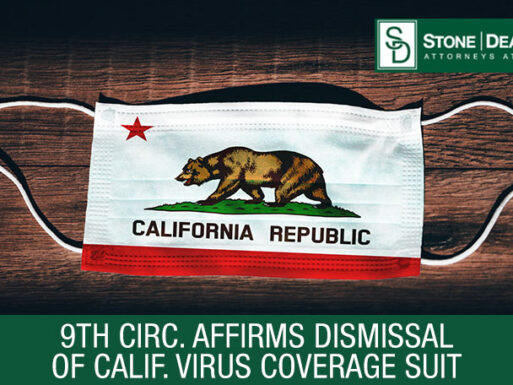 Les Callahan of Callahan Risk Insurance Services is a friend of the firm, and he offers these sage words of wisdom regarding the “notice of claim” issue involving insurance broker errors and omissions.
Les Callahan of Callahan Risk Insurance Services is a friend of the firm, and he offers these sage words of wisdom regarding the “notice of claim” issue involving insurance broker errors and omissions.
This is an old quote from Francis Bacon that transcends its time and context, and applies well to purchasers of Insurance Agents Professional Liability policies. An insured’s knowledge – or awareness – of any circumstance that may reasonably give rise to a claim may empower to determine if a claim is to be covered or denied.
This power is determined by when such knowledge occurs. Most Insureds are aware of the various timeline components in their policies, i.e. the Retroactive Date, Policy Effective Date, Expiration Date, Extended Reporting Period (Tail Coverage), etc., however, for many policies, one of the more critical components to consider, yet less often discussed, is the Prior Knowledge Date.
The Prior Knowledge Date is not always a defined item on the Declarations page nor in the Definitions section of the policy. It refers to the date the Insured is recognized as having acquired knowledge of a circumstance that could reasonably give rise to a claim. A few carriers will expand coverage so that the Prior Knowledge Date will only apply in the event an Executive Officer becomes aware of the circumstance. In most cases, knowledge will be considered as occurring once the Insured (commonly defined as the Insured Entity, or any person who is a principal, partner, officer, director, employee [incl. seasonal, temporary, volunteer, etc.]) gains awareness.
The Notice to Executive Officer provision is a significant coverage enhancement, especially if an Insured (as mentioned above) becomes aware around the time of policy expiration or renewal. Knowledge by an employee does not necessarily translate into knowledge by an Executive Officer and this lack of communication, intentional or otherwise, can easily translate into a claim being covered or not covered post-renewal due to the knowledge factor.
As a specialist in the placement of coverage for Insurance Agents Professional Liability I would strongly encourage every firm to pursue this enhancement in order to protect themselves from any intentional or unintentional lack of information flow between the temporary worker or administrative assistant that may first learn of an event and the executive. Put in procedures for the handling of such information, and the resources to implement them.
Use knowledge to your advantage and take hold of the power available to you by pursuing the broadest policy wording the market makes available – you can then let your policy be a source of comfort and not fear.
Les Callahan, Principal



